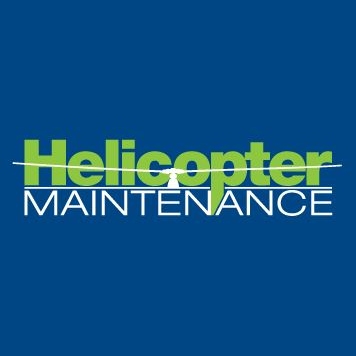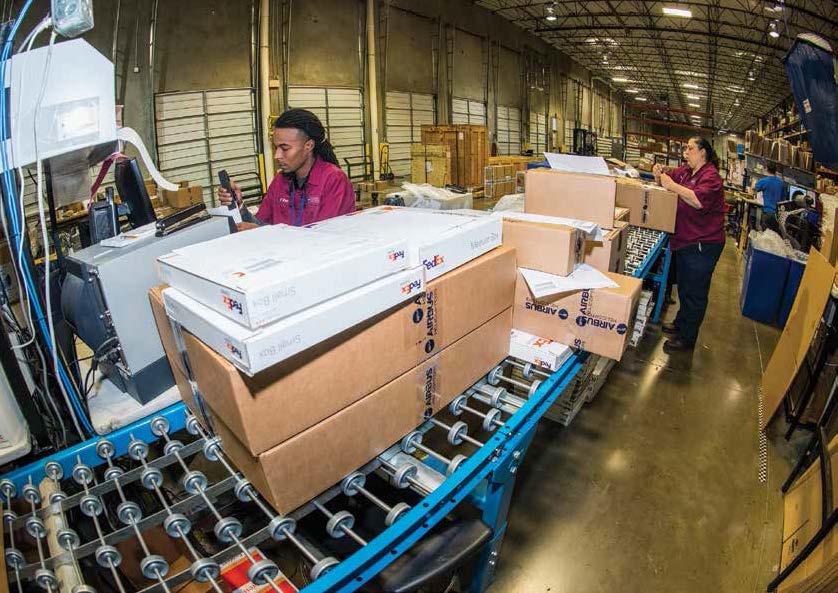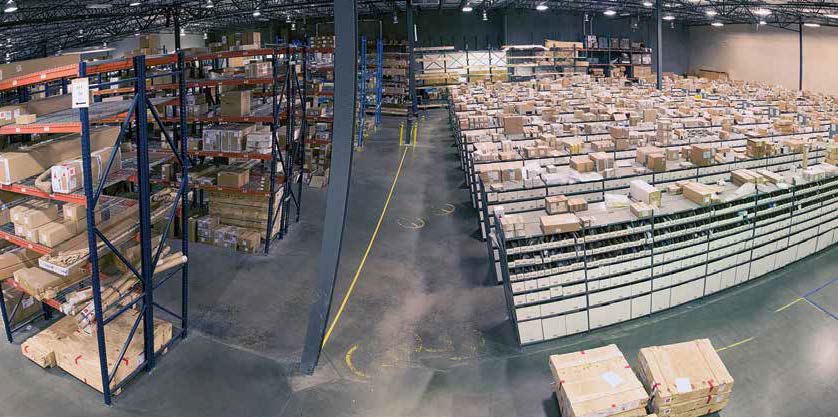
Airbus Helicopters - Focusing on Customer Support


The folks at Airbus Helicopters Inc., based in Grand Prairie, TX, (between Dallas and Fort Worth) are proud of their record of providing high-quality customer support and service.
That pride applies to serving all of its customers, including its single largest customer, the U.S. Army. Airbus Helicopters makes the UH-72A Lakota, a training and light utility helicopter for the Army and has delivered more than 320 aircraft since 2006, all on time and on budget. Airbus Helicopters (the U.S. helicopter subsidiary of Airbus Group, which in 2014 changed its name from American Eurocopter) has an outstanding record providing Lakota support for the Army and has drawn high praise from the Pentagon.
The company works hard improve its commercial customer support to similar levels. For years Eurocopter/Airbus has ranked no better than middle of the pack in Pro Pilotmagazine’s annual Helicopter Product Support Survey. In recent years its ranking has fallen from third in 2012 to fourth in 2013, and to fifth in 2014 — in a field of five manufacturers.
Airbus Helicopters leaders are determined to change that ranking. “Here in the U.S. market we have strong, successful customers who demand higher standards,” says CEO Marc Paganini. “They demand that we deliver parts on time and keep their helicopters flying. Those are the goals my team will work towards every day. Our customers will accept no less.”
Striving to improve customer service isn’t a new challenge for the company. The hard reality was that Airbus Helicopters faced some natural impediments in attempting to deliver industry-leading customer support to U.S. operators. Airbus sources a large amount of its commercial helicopter parts from Europe. If a part is not in the company’s U.S. inventory when a customer asks for it, delivery will be delayed at least one more day.
In 2008, Eurocopter/Airbus opened an 84,000-square-foot helicopter parts warehouse at nearby Dallas-Fort Worth Airport that. It is nearly double the size of company’s previous warehouse on the Grand Prairie campus. Paganini recognized in late 2012 that more needed to be done. He put industry veteran Peter Cutler, who has more than two decades of customer support leadership experience, in charge of revamping Eurocopter/Airbus’ approach to customer support.
Cutler had joined American Eurocopter in 2011 to manage not only production and delivery of Lakotas, but also the delivery of customer support to the Army. He applies the same principles to the delivery of customer support to commercial customers that has worked so well on the U.S. Army program: focus on the customers’ operational availability rates, on on-time delivery of parts, and on helping customers lower their maintenance costs.

Lakota program on-time spare parts delivery has consistently been 97 percent or better. Fleet operational availability has exceeded 90 percent, a remarkable performance given the demanding nature of the flying performed with those aircraft, and the intense flight schedules on which they are operated. Airbus Helicopters continues to provide high-quality support to the Army and does it profitably while working under a tough fixed cost-per-flight hour contract with the Pentagon.
“We’re doing an outstanding job for the Army, but getting lower grades from commercial customers in the Pro Pilot survey,” says Cutler. “So we clearly had some challenges to address on that side of our business.”
Inventory
Airbus Helicopters is addressing those challenges. It has been expanding the inventory of spare parts and material at the DFW warehouse. The inventory value has grown from about $90 million in 2012 to nearly $105 million at year’s end, and will reach about $115 million by mid-2015. The cost of that investment in an expanded U.S. parts inventory is being borne by Airbus Helicopters Inc. Airbus Helicopters invested $40 million globally in 2014 to increase parts inventories and support Airbus helicopter operators around the world.

However, having more parts on hand isn’t worth much if the mix of available parts isn’t right and if customers can’t get the parts they need when they need them. Helicopters grounded by mechanical failure are a financial problem for commercial operators. Not only are they unable to produce revenue while on the ground, all the costs associated with them — lease or purchase payments, insurance, crew costs, etc. — continue.
On the parts management technology side, Airbus has made its Keycopter e-Commerce management system available to all of its customers. Operators can order and track parts online just as easily as Airbus’ own internal tech support staff. Operators get full visibility of Airbus’ parts inventory, making the task of ordering parts easier for both parties.
Support
Airbus also created a more sophisticated support operation in Grand Prairie to help operators deal with complex or problematic parts acquisition and technical service issues. Help is available 24/7 via a team of veteran logisticians and technical experts on specific aircraft frames, engines and systems.
Airbus’ field tech service team is aligned along regional and platform lines. Customer service managers are assigned to each customer, allowing them to build better relationships with operators and provide hands-on support. They can work with operators and show how to use capabilities built into the Keycopter system to better manage aircraft in a way that will reduce or eliminate unplanned maintenance and avoid aircraft-on-ground (AOG) events.

“About 14 percent of our parts currently are ordered AOG,” says Cutler. “A significant amount of material is ordered on a rush basis. Our goal is to get to a point where parts are ordered through scheduled, planned ordering rather than in AOG and rush situations. By reducing the number of AOG and rush orders, we help our customers maximize their fleet availability.”
Airbus’ focus is to eliminate AOG events. Customer service managers work with operators to implement or improve their monitoring of parts and aircraft performance. Not only are they encouraging and showing operators how to use new and more sophisticated parts and system monitoring techniques and devices, they’re building an ever-expanding data base across all Airbus Helicopter types to gain better understandings of service issues.
Over time, that knowledge base will make it easier for operators to predict maintenance needs, minimizing unscheduled maintenance. It also will make it possible for informed operators to alter the way in which they fly to maximize operational availability
“The objective is to use the data we’re collecting from our operators to be able to better predict when parts need to be replaced,” says Cutler. The ultimate goal is to go to condition-based maintenance rather than maintenance driven by flight.
Results
The results of Airbus customer service changes are encouraging so far. As 2014 entered its final month, Cutler said Airbus’s on-time delivery rate for spare parts was more than 89 percent and that he expected the company to achieve its full-year goal of 90 percent. The goal is a 95-percent on-time delivery rate by the end of 2015. Such a performance would put it at or near the top of the industry.
Cutler says that Airbus customers recognize the company’s efforts to improve support.
“The people who fly our helicopters love our product and they think we have one of the most advanced products in the business,” he says. “They want us to focus on two things: controlling their maintenance costs and their aircraft availability rates — and we’re doing that.”
